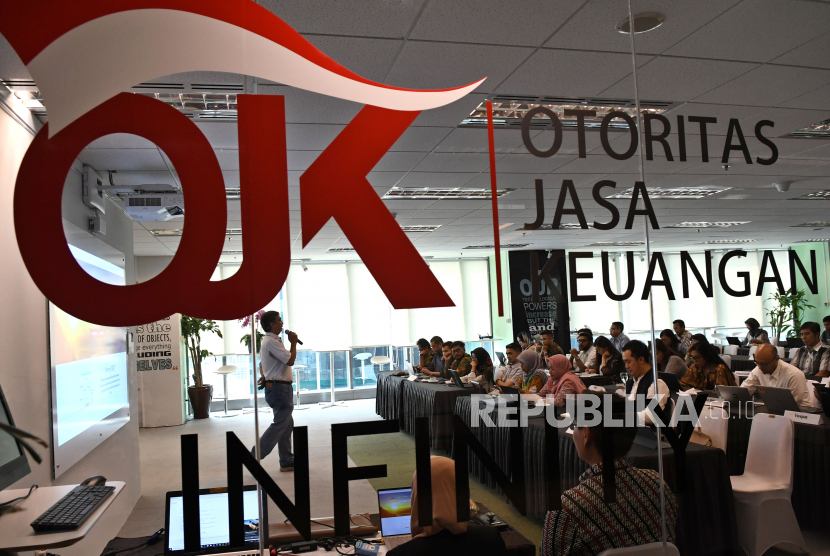REPUBLIKA.CO.ID, KEDIRI -- The Indonesia Financial Services Authority or Otoritas Jasa Keuangan (OJK) revealed, the Indonesian literacy and inclusion index of sharia finance continues to increase. As a major country in global sharia economy, this trend will be a benefit for worldwide industry.
“The sharia financial literacy and inclusion index showed an increase since 2016. However, it still requires joint efforts in pursuit of the national index,” Deputy Director of OJK's Sharia Financial Literacy and Inclusion Group Rakyan Gilar Gifarulla, on Thursday (28/3/2024).
He said in a media update held by OJK Kediri online, the financial literacy index in 2016 for the national counted for 29.7 percent and the sharia counted for 8.1 percent, resulting a gap of 21.6 percent.
Then in 2019, the national was 38.03 percent and the sharia was 8.93 percent, so there was a 29.1 percent gap. Meanwhile, in 2022, nationwide 49.68 percent and sharia 9.14 percent, so there is a gap of 40.54 percent.
The financial inclusion index nationally counted for 67.8 percent at 2016, while sharia 11.1 percent so there is a gap of 56.7 percent. In 2019, the national one is 76.19 percent and the sharia 9.1 percent so there is a gap of 67.09 percent and in 2022 the national one is 85.1 percent and the sharia 12.12 percent so there is a gap of 72.98 percent.
"The gap between national indices and sharia needs to be overcome by synergy and collaboration between policy stakeholders. This is in order to continue accelerating the increase in literacy and financial inclusion of Sharia," he said.
According to him, the development of the global sharia economy sector is currently robust. It is supported by both demand and supply side. So Indonesia should be catching up the trend to follow the market needs.
In 2023, the value of sharia financial transactions increased by up to five times from the previous year. In addition, there are global agreements to increase trade cooperation from 18 percent (2021) to 25 percent (2025) between OIC countries.
Currently, he said, Indonesia ranks 7th for total sharia financial assets in the world based on the Islamic Finance Development Indicator Report (IFDR) 2022. Indonesia ranks 3th in State of Global Islamic Economy 2023 for leading in various sectors such as sharia finance, halal food, halal medicine, and halal cosmetics.
Back to indexes, disparity in the literacy rate and financial inclusion of sharia economy comes from regional. There are still 16 provinces in Indonesia that are in the bottom quadrant, both with lower literacy and inclusion rates than the composite sharia index.
He acknowledged, education on financial literacy must be continue to improved. There are still many people who do not yet understand sharia financial products and services, one of them because the term is considered elusive.
Meanwhile, Deputy Secretary of the Daily Implementing Agency of the National Sharia Council - Majelis Ulama Indonesia (BPH DSN-MUI) Asep Supyadillah added the problems is just a matter of time. The conventional financial system has been running for a centuries, while the sharia financial system only emerged in the early 1990s in Indonesia.
According to him, the recognition of this sharia financial system began with the establishment of a sharia bank in 1992 in addition to conventional banks, resulting in the acceptance of the two banking systems.
In its course, MUI has also issued a number of fatwas such as repayment of the murabahah financing debt before maturity, the collection of funds with akad wakalah bi al-istitsmar, akad samsarah, health insurance products based on sharia principles and a number of other fatwas.
“DSN-MUI as part of MUI has a vision of establishing a sharia economy and sharia society's economy with the mission of growing the sharia economy, financial institutions and sharia businesses for the welfare of the ummah,” he said.


